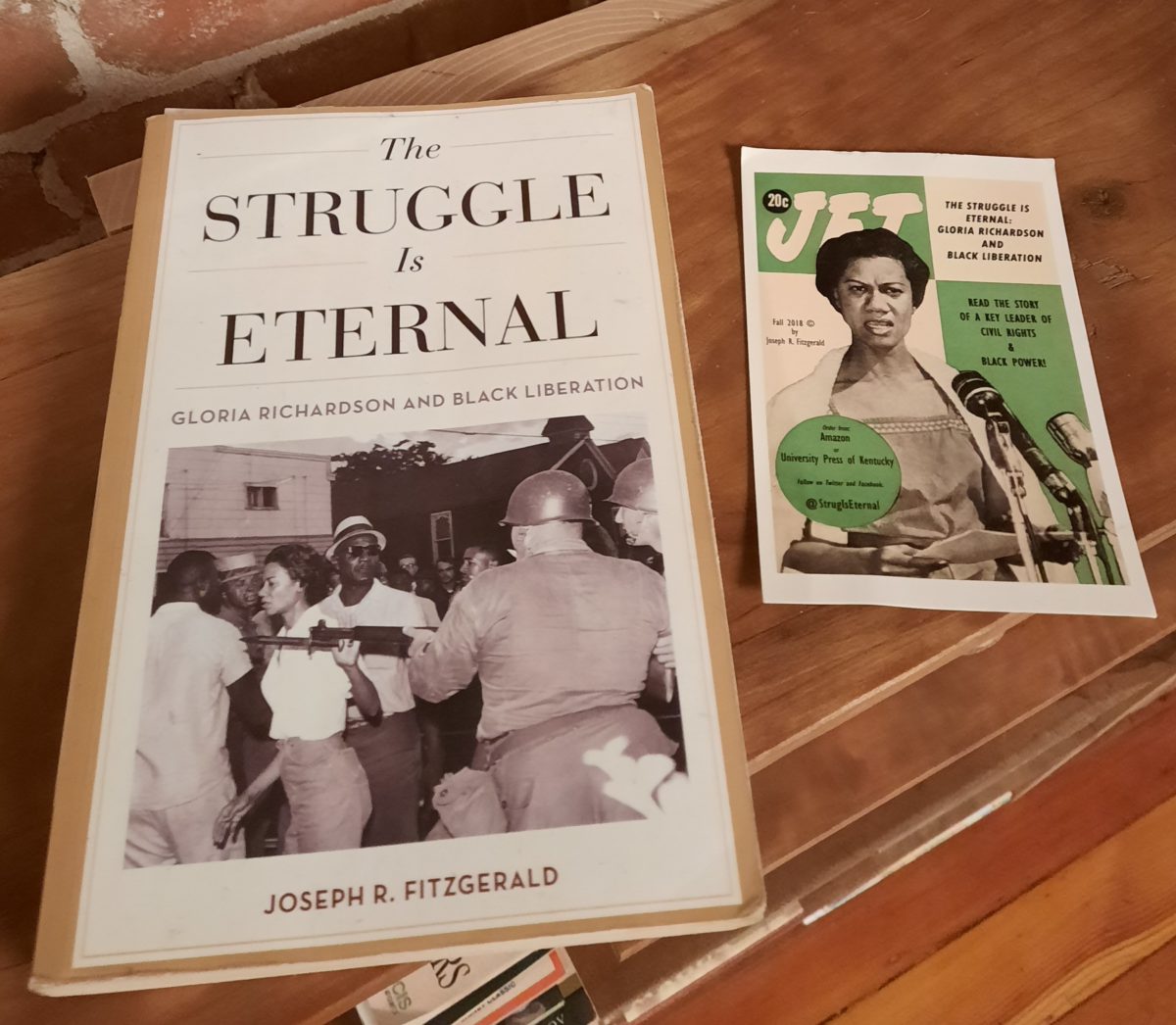Last month, Professor Joseph Fitzgerald of Cabrini University in Radnor, Pennsylvania, visited the Highlands Bunker podcast studio to discuss his biography of civil rights activist Gloria Richardson, The Struggle Is Eternal – Gloria Richardson and Black Liberation (University of Kentucky Press, 2018). While Ms. Richardson’s most public work for Black equality centered around Cambridge, Maryland, and surrounding Eastern Shore towns, and ended over 50 years ago, her ideas, methods and personal courage has a great deal to teach the organizers and activists of the 21st century.
The full interview, available for free across most podcast platforms, focuses on four crucial aspects of Richardson’s organizing strength.
First was class awareness. While Richardson was born into an affluent family and attended prestigious Howard University in Washington, D.C., she was acutely aware of the conditions for the majority of Black folks in her hometown and across the country. Moreover, she understood that the fate of all Black people was intrinsically connected to her own (and her children’s!).
Second, the issues and demands of the Cambridge movement were specific to the material needs of the community. Richardson’s training in sociology allowed for surveys to be done to identify which problems were most pressing for local Black people. The Cambridge Nonviolent Action Committee (CNAC) intentionally focused their activism on the matters most important to the people, including education, housing and job opportunities.
The third lesson discussed was strategy and tactics. While Richardson eventually worked as a co-chair of CNAC, she was not a founder. CNAC was not a hierarchical group. It reached decisions by consensus. This allowed for a spirit of solidarity to ferment. This strong mutual support allowed for the use of a variety of tactics including nonviolent direct action, voting boycotts and threats of rent strikes.
The final lesson is dealing with culturally normalized misogyny. Although it manifested itself differently in the early 1960s, the fact that Richardson was a Black woman made navigating an activist ecosystem of mostly men especially challenging. Richardson was always aware of small slights and condescension due to her gender and was regularly described in the media with sexist tropes.
In the end, though, Richardson was able to achieve many successes in Cambridge and beyond due to her thoughtfulness, selflessness, local credibility, and indelible personal courage.
Professor Fitzgerald was a personal friend of Richardson’s (she passed away in July of 2021 aged 99). He shares some of Richardson’s first-hand advice and recollections in the 70 minute interview. Today’s activists and advocates would do well to study the life and work of Gloria Richardson because the struggle for the liberation of all human beings is indeed eternal.

